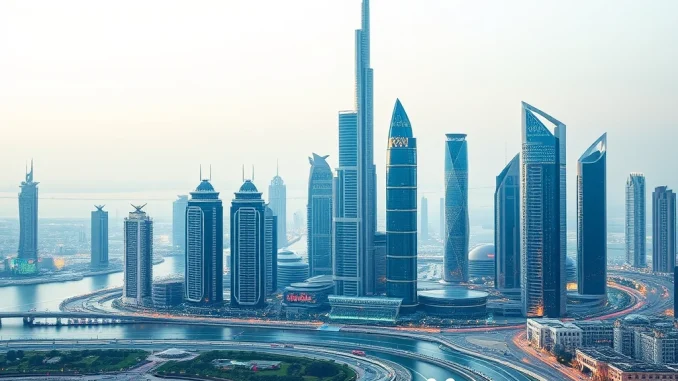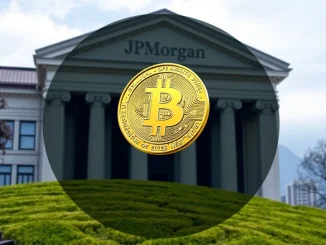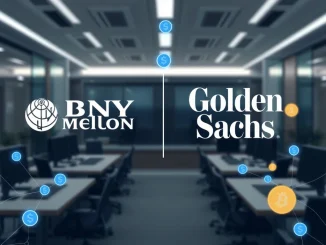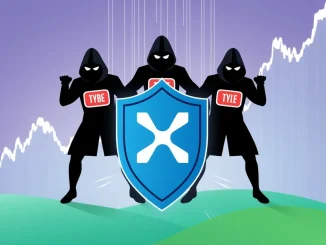
Attention crypto enthusiasts and investors! Get ready for a significant development from the world of digital assets. Ripple is making major waves in the Middle East, particularly in Dubai, leveraging its technology for groundbreaking projects. This move signals a strong acceleration in Ripple’s global strategy following its legal clarity in the U.S.
Ripple Accelerates Expansion in the Middle East
Ripple’s focus on the Middle East has intensified, with Dubai emerging as a critical hub for its operations and strategic initiatives. This region is rapidly embracing digital transformation, and Ripple is positioning itself at the forefront of this shift. The company’s efforts extend beyond traditional payments, venturing into innovative areas like asset tokenization.
XRPL Powers Dubai Real Estate Tokenization
A major highlight of Ripple’s expansion is the selection of the XRP Ledger (XRPL) for a significant government-backed project in Dubai. This initiative aims to tokenize real estate assets within the city. The goal is ambitious: tokenizing an estimated $16.3 billion worth of assets by 2033. The choice of XRPL underscores its capabilities for handling large-scale, secure, and efficient tokenization processes. This project has the potential to transform how real estate is owned, traded, and managed in Dubai.
What does this mean for real estate?
- Increased liquidity for property owners.
- Lower transaction costs and faster settlements.
- Potential for fractional ownership, making investments more accessible.
- Enhanced transparency and security through blockchain technology.
Strategic Funding and Regulatory Wins
Ripple’s push into the Middle East is supported by strategic financial maneuvers and regulatory successes. The company recently secured $121 million in private funding through a partnership with Nasdaq-listed VivoPower. This collaboration involves adopting an XRP-based reserve model, notably backed by significant Saudi investment, further solidifying Ripple’s ties in the region.
Furthermore, Ripple has successfully obtained regulatory approval in Dubai, a crucial step for operating and expanding within the Emirate’s financial landscape. This regulatory clarity allows Ripple to pursue and deepen partnerships across various sectors, including payments and the burgeoning stablecoin market, enhancing its operational footprint in the Middle East.
Boosting Institutional Services and Integration
Ripple’s strategic acquisition of broker Hidden Road for $1.25 billion is set to significantly boost its institutional service offerings. This acquisition is pivotal in positioning Ripple to lead in asset tokenization and facilitate the integration of decentralized finance (DeFi) with traditional finance (TradFi) across the Middle East. By enhancing its capabilities to serve institutional clients, Ripple is paving the way for greater adoption of digital assets and blockchain technology in established financial systems.
This integration is key to unlocking the full potential of blockchain for large-scale financial operations. The focus on asset tokenization is particularly relevant in a region like Dubai, known for its significant real estate and financial markets.
Conclusion: Ripple’s Growing Influence in Dubai
Ripple’s recent moves in the Middle East, centered around Dubai, highlight a deliberate and successful strategy to become a key player in the region’s digital economy. The selection of XRPL for the massive real estate tokenization project, coupled with strategic funding, regulatory approvals, and key acquisitions, positions Ripple for substantial growth and influence. As Dubai continues its journey towards becoming a leading global digital hub, Ripple’s technology appears set to play a vital role in shaping its future financial and real estate landscapes.



